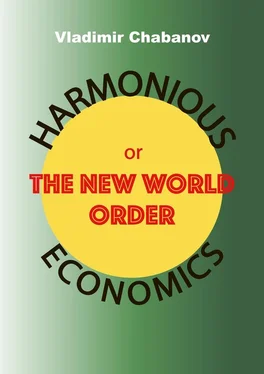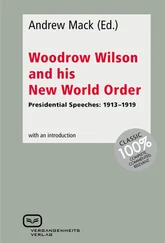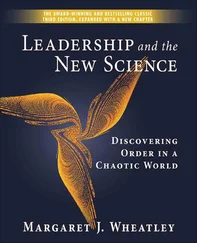This issue is difficult to understand not only because of its multifaceted nature, but also because its causes and consequences have intertwined into such a tight knot that untying it turns out extremely complicated. Moreover, should we even try to do that? To find out, let us start by drawing a simple list of the key SLPsuppressing factors.
As it has already been mentioned, none of the structures present in Figure 1 is self-sufficient, and only united they have force. Nevertheless, the current economic model does not provide a clear order for distribution of jointly produced income, which further complicates the work of the forces that bind these structures together. Administration has failed to manage it, and the present-day monetary mechanism aimed at executing this function works poorly in the current conditions (for more details, see Subsection 3.2.2).
For this reason, each of the economic sectors pursues its proper interests, and does not care for the common benefit. This breaks the coordination of actions, and constructive cooperation is replaced by destructive competition. The desire to appropriate the bigger part of public income overpowers the task of increasing its aggregate value. Modern experts in the sphere of finance, energetics, trade, housing and utilities and others, with their absolute lack of restraint, are a vivid example of this tendency. For instance, the share of energy-related expenditures in the Russian enterprises price structure has already exceeded 50%, which does not correspond to the number of work force employed in the sector and, therefore, undermines the competitiveness of national economics.
If across the world the correlation between the income of producers and trade in the prices of items is about 70% to 30%, in Russia this proportion has literally been reversed. The profit from management, trade, and credit and financial services has become incommensurably higher than the income of science, education, awareness, light industries, or healthcare. It would be erroneous to assume that the most prosperous economic sectors employ the most intelligent, hardworking, experienced and qualified people. Besides, it seems too naïve to believe that such system better stimulates real values production.
Furthermore, the result of such confrontation is easily predictable. Russian fable writer I. A. Krylov described this situation in his fable: “ A Crawfish, Swan and Pike combining | resolved to draw a cart and freight… However much they work, the load to stir refuses. | It seems to be perverse with selfwill vast endowed; | The swan makes upward for a cloud. | The crayfish falls behind, the pike the river uses… ’. That is why “… the cart remains there, stil l’ 41 41 Cit. ex I. A. Krylov, Crawfish, Swan and Pike. Translated by C. Fillingham Coxwell. (Librivox recordings).
. However, the ideologists of modern economics seem to be completely unaware of this; at least, they do their best to ignore the problem.
Another global factor suppressing SLPis the actual lack of interest on the part of all economic structures in seeing real (non-monetary) results of their activities. This applies not only to wage workers and administrators, but also to politicians and businessmen. The actual result of their work is concealed by financial success, personal benefits, fixed salary, profit, preferences, which belong to a different category. That is why the existing incentives for work organisation often fail to help social production to flourish, moreover, they end up suppressing and degrading it.
Indeed, money as a purpose of economic activity does not constitute a real value; it is nothing but a trade instrument. It is a generally accepted equivalent for exchange of commodities, a social convention, artificially enabled to substitute real goods. Unless backed by real things, money is empty, and at present no backing is provided for it. That is why the general acceptance of such “conventions’ cannot contribute to actual prosperity. For instance, various forms of rent, racketeering, crime, corruption, inflation, drugs, etc. generate significant income for some people, but is far from benefiting the society in general, rather, they destroy it.
Huge losses are also born by the humanity as the result of disharmony between production and Nature, i.e. as the result of the desire to use up the natural rent, to make momentary profit without taking global consequences into account. As the result, modern expanded production is by no means expanded. On the contrary, it shapes vital activity by way of destroying its very foundation, i.e. natural habitat. Thus, for the past several decades we have shamelessly live at the expense of Nature, squandering, like thoughtless barbarians, the wealth it has accumulated over millions of years. We now live at the cost of future generations.
Therefore, if the natural mark-up is included in the cost price of products, the profitability of the major part of modern enterprises will be negative! To quote an example, in order to return the Volga river to its pre-industrial state, to restore fisheries and farmed lands, to rebuild the houses and the infrastructure of all submerged territories, much more energy would be required than has been generated by the hydropower plants constructed on the river. One might wonder: what kind of economics are we dealing with, and what is the actual efficiency of its production relations?
And still, one of the most powerful influences on the structure, the ideology, and the very lifestyle of the society is exerted by exploitation,i.e. by unequal exchange of products of labourbetween economic actors and individuals. Born as simple cannibalism, this phenomenon has by now acquired most sophisticated forms; it is not only revered, it is universally desired. The market itself, in its current form, fully connives in this. As the result, a capitalist system has evolved, within which poverty is strongly tied to the excessive wealth of certain individuals.
The extent of exploitation is truly planetary, this phenomenon knows no borders. One finds it in the way economic structures and the state itself are organized, and in the ways the ruling elites are selected. It is behind the destructive wars, which break out or smoulder across the globe; behind the suicidal consumption of human and natural resources.
The existence of exploitation, as well as that of any complex phenomenon, can be explained by a number of reasons. Among these, physical violence: threats, burglary, gangsterism, theft, and indemnities. Besides, there is ideological pressure, through deception, fraud, ideologic and religious dogmas, and intellectual slavery. Moreover, one should not forget about administrative racketeering in the form of bribery, extortion, corruption, and distribution of privileges. Financial factors also enter into play here, among them, usury, speculations, monetary and price swindles, and stock exchange speculations. Even private property of production means often poorly stimulates production, but suppresses it rather effectively. Money capital is also engaged here: it represents the easiest to become dependent on, and the simplest scheme to deprive people of what they have earned.
In fact, neither power, nor property or capital on their own have a positive or a negative charge. They are like a sword, which can serve the good or the evil, depending on who holds it. All depends on who, where, and how acquires them, and the purpose they are used for. If their mission is to fulfil their natural function – increase the productive capacities of the society and improve life quality – then they are useful. And if they are only employed for personal enrichment, then they could be dangerous. Eventually, this is what determines the entire image of the society, the expedience of its existence of the administration itself, of private property, of labour, and capital as we know them today.
Читать дальше












